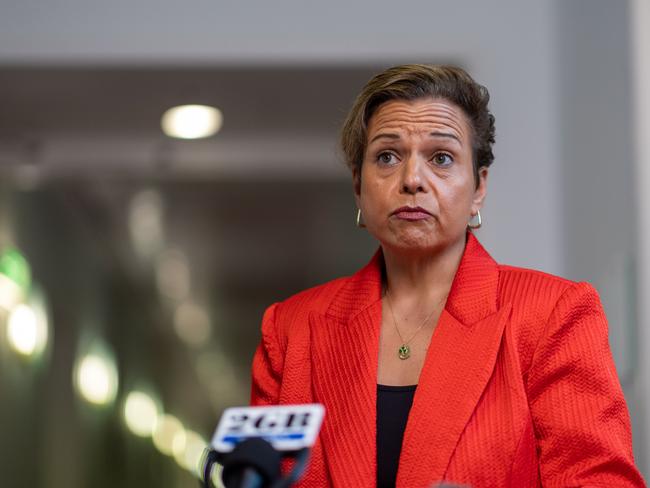Cyber bullies in the firing line: Budget boost for eSafety commissioner
Amid a spike in cyberbullying and ‘deepfake pornography’ the government has ramped up funding to the office of the eSafety commissioner.

A spike in cyber-bullying and “deepfake” sex-based attacks online will see the eSafety commissioner’s funding soar, with annual base funding to rise by $132.1m over four years.
Commissioner Julie Inman Grant, a former Twitter executive, has led the office since its establishment in 2015 and has consistently called for the government to do more to tackle cyber-bullying as well as online extremism and radicalisation.
Her office acts as a liaison between tech giants such as Facebook parent company Meta, TikTok and Twitter, law enforcement agencies and victims. It also provides resources to schools and students about staying safe online, and can order social media platforms to take down material.
Recent statistics show that a quarter of young people admitted to cyber-bullying someone in the past 12 months, with the problem surging during Covid.
“(The funding) will provide certainty and stability to the online safety regulator and build a safer experience online for Australians,” Communications Minister Michelle Rowland said.
The commissioner’s responsibilities have grown significantly since the office was established but base funding has never been increased.

“Funding decisions taken by the former Liberal-National government meant this key agency was facing a funding cliff,” Ms Rowland said. “Without intervention, eSafety’s funding would have dropped from $51.8m to just $21.3m next year, before declining further to just $10.3m from 2027-28, severely impacting the regulator’s ability to do its important job.”
The commissioner’s office is currently working on new industry-led codes that would regulate Big Tech and tackle online safety issues including child sex abuse.
In November, Ms Inman Grant wrote to Twitter owner Elon Musk to ensure Twitter would keep complying with Australian law amid widespread layoffs at the company. The rise of artificial intelligence has also led to “deepfake” pornography, which the eSafety office has been forced to take down.
“The Albanese government’s investment will allow eSafety to keep up with demand for its take-down schemes, deliver more education programs and hold industry to account for keeping their users safe,” Ms Rowland said.
The funding would also ensure eSafety could better co-ordinate with law enforcement to remove child sexual exploitation materials.



To join the conversation, please log in. Don't have an account? Register
Join the conversation, you are commenting as Logout